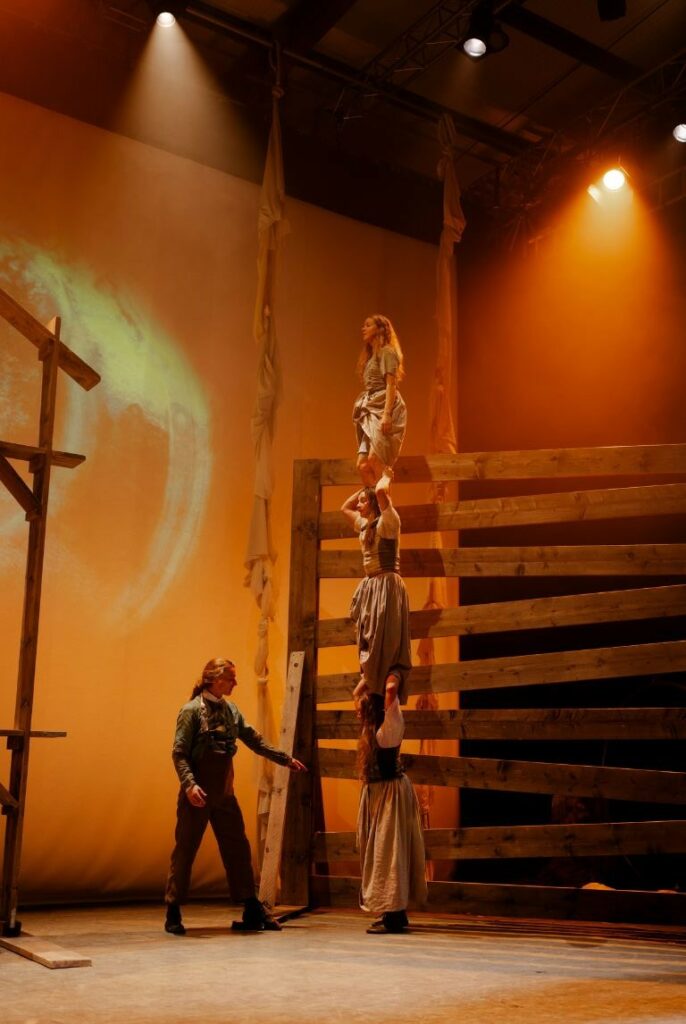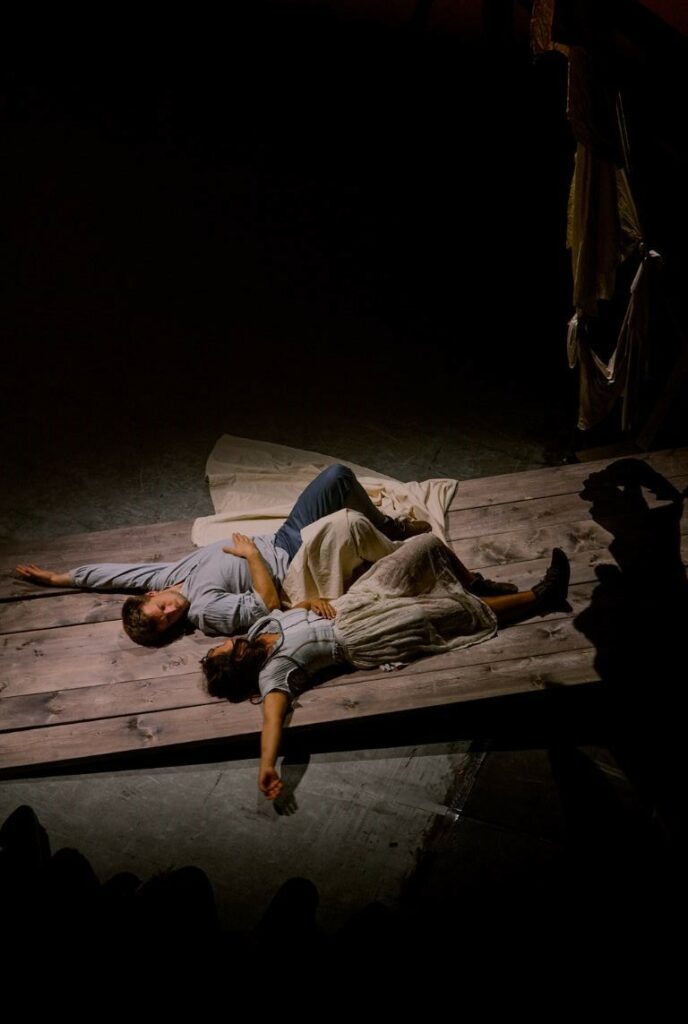Contemporary circus company Ockham’s Razor are back in Worthing this May with their incredible new production, Tess. Based on Thomas Hardy’s Tess of the D’Urbervilles this is sure to be a visually spectacular and emotionally raw production. Read on to find out more about Hardy, his novel and this striking production.
Who was Thomas Hardy?
Thomas Hardy was born in Dorset in 1840. He was a Victorian novelist and poet who wrote realistic fiction. Hardy’s rural, working-class background made him feel out of place in London society, where he had been awarded a place at King’s College London to study architecture. His feelings of social inferiority led him to become interested in social reform movements and inspired his writing.

Hardy’s writing style was heavily influenced by Romanticism, a cultural movement which examined the interplay between society, modernity and nature. His emotive descriptions of landscapes and scenery are charged with enough energy to feel like characters themselves within the narrative.
Hardy’s novels, including Tess of the D’Urbervilles, are connected by their setting in the semi-fictional county of Wessex, which was based on the rural region of the south west where he grew up. Often detailing the plight of rural communities in the face of harsh Victorian values, Hardy’s work critiques conventions of class, religion and education.
His novels follow tragic characters who are often gripped by intense emotional passions. They struggle against their social circumstances as fate, chance and choice dictate their path.
What is Tess of the D’Urbervilles about?
The novel follows a young country girl, Tess Derbyfield, who is led down a tragic path. Tess’ innocence and beauty are often taken advantage of, or weaponised against her. The novel’s full title is Tess of the d’Urbervilles: A Pure Woman Faithfully Presented. With this Hardy was indicating to his Victorian readers that Tess, in her tragic situation, is not at fault. Tess’ actions throughout the novel are driven by her pure nature, faith and morality. She always acts with good intentions, trying to make things better. However, the circumstances that are thrust upon her, the actions of others, and her inability to escape social expectations cause her downfall.


In the beginning of the novel Tess, the eldest daughter of an impoverished drunk, tries to improve her family’s situation for the sake of her younger siblings. However, this decision leads to disastrous personal consequences. Throughout the novel Tess finds herself battling extreme bouts of guilt for the social harm she causes her loved ones. Tess is both influenced and mistreated by men she places trust in and, within the rigid confines of strict Victorian social values, she is punished for doing so. Her subsequent choices lead to repeated falls from grace. Although she is worn down by pressure and poverty Tess always makes choices in the name of saving her siblings, even eventually accepting her own dreadful fate.



What’s the significance?
When Hardy first published Tess of the d’Urbervilles in 1891 many thought of it as vulgar. Within the novel Hardy critiques religious influences on social values, particularly those pertaining to sex and the treatment of women. The first section, The Maiden, ends by strongly implying that Tess is sexually assaulted. The next section, Maiden No More, reveals that Tess has given birth to a baby. It is thought that Hardy chose to be intentionally ambiguous in his description of Tess’ sexual encounter. Doing so implies that, whether Tess consented to sex or not, her subsequent mistreatment and label as a ‘fallen woman’ is unjustified.

The concept that women shouldn’t be held to a different set of social expectations and morals to men had been gaining prominence since the 18th century. Hardy’s depiction of Tess as a victim of societal values means the novel remains an important portrayal of life for women in a society not built for them. These issues still exist for women all over the world today. Therefore, Tess of the d’Urbervilles is as relevant now as it was in 1891.
About Ockham’s Razor
Formed in 2004, Ockham’s Razor makes visually arresting work through their innovative combination of circus and physical theatre. They use the form of circus to express recognisable emotional conflict and relatable stories on stage. The company’s name derives from a problem-solving principle by medieval philosopher William Occam. It boils down to the idea that the simplest solution is usually the best one. It is called Occam’s Razor as this principle shaves off unnecessary input and factors. The company employs this approach to inform their creative process.
Tess weaves together acrobatics, aerial, physical theatre, spoken word and an inventive, evocative set to conjure Hardy’s world. A spokesperson for the company said “The classic novel still has extraordinary relevance for contemporary audiences as it explores questions of privilege, class, poverty, agency, female desire and solidarity. It is the first time we have worked from a novel and it’s thrilling to weave together Hardy’s words with our physical storytelling to tell this gut-wrenching story about the strength to endure.”
★★★★ “full of joy, wonder and delight, a highly original interpretation.”
★★★★ “ingenious, an inspired adaptation”
Tess is on at the Pavilion Theatre 16th-18th May. The production is suitable for ages 12+.

